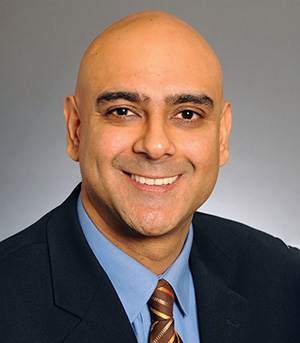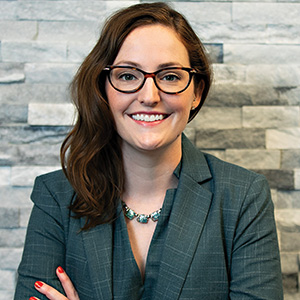
In Padilla v Kentucky (2010), a landmark decision expanding rights of noncitizens regarding proper immigration advice before a guilty plea, the U.S. Supreme Court stated, “Immigration law can be complex, and it is a legal specialty of its own.” The court was right to underscore this, and it’s understandable how my colleagues can overlook just how complex immigration law is.
For example, different “legal statuses” exist for noncitizens depending on their purpose of entry. There are temporary entries ranging from visitor or student to refugee, and myriad narrowly defined occupations. Then there is “permanent residency,” or green card, and finally citizenship. Some gain these statuses prior to entry and some change status once they’re here. Within this framework, there are additional (or fewer) options depending on a noncitizen’s country of origin. Not only is immigration a specialty of its own, but immigration from particular areas of the world can be specialties too.
Eligibility is just the beginning. The application for a typical H1B (tech worker) visa, for example, will go through four federal agencies: Department of Labor, USCIS, Department of State, and Customs and Border Patrol. And each agency has the right to question every aspect of the application even if prior agencies have approved it.
There are layers of rights, privileges, and consequences that come along with each different status. For example: Noncitizens, legal or not, have relatively few constitutional rights in the deportation process, because that process is civil. Yet within the criminal process, noncitizens have equal rights under the Constitution. This difference often leads to confusing public (and legal) debate over the future of immigrants.
The immigration law practitioner also faces unique day-to-day challenges. For example, although dual representation is frowned upon in most areas of law, it is commonplace in immigration. Noncitizens are sponsored by a family member or future employer; a lawyer must therefore walk the fine line of representing both interests. In effect, one fee covers two separate clients who must be served according to the same ethics laws followed by all attorneys, but concurrently. Keep in mind that two-thirds of all immigration lawyers are solo practitioners. Yet the challenges, such as language barriers and acquiring documentation (which may have been destroyed in a war-torn country), remain formidable.
Satveer Chaudhary is past chair of MSBA’s Immigration Law Section and current chair of MSBA’s Criminal Law Section. Born and raised in Minnesota, he was a Minnesota lawmaker from 1996 to 2010 and the first Indian-American state senator in U.S. history.

The most common misperception about public defenders is that we are subpar lawyers. When I applied for my job, over 200 other attorneys did as well. I work with Ivy League graduates, people who have served in the military, people from all backgrounds who are exceptional at the work they do and here because they want to be. Please humor me and google the NY Times opinion video “True Believers in Justice.” Though it’s about defenders in the south, it still rings true post-George Floyd in Minneapolis. We can’t play along with a broken system, but holding people in power accountable can make us the targets of unfounded personal attacks. A subpar lawyer would not take the risks, make the sacrifices, and fight the system the way we do every day.
The second most common misperception about defense attorneys in general is that we are like car dealers—as if we are scheming to sell our client’s story when in reality we are upholding the Constitution that is essential to our justice system, whether our client is guilty or not.
Oftentimes, the crimes our clients are accused of doing or have done are imputed on to us and our arguments. Unlike a prosecutor, whose role is to seek justice, not a conviction at all costs, defense attorneys advocate for their clients alone. I advocate for my clients to the best of my ability even if I don’t personally like them or what they are accused of doing or may have actually done.
Another common misperception is that we represent clients who are guilty. Many of my clients are innocent of what they are charged with, and frequently issues like mental health, childhood traumas, addiction, and poverty make concepts like “innocence” and “guilt” more grayscale than black and white.
Shauna Kieffer has been a public defender in Minneapolis for 10 years. Before that, she clerked for a judge and worked in private practice. She has taught privacy issues statewide and her district court arguments prevailed at the Minnesota Supreme Court in State v. Leonard in 2020.

When most people hear “elder law attorney,” the first thing that pops into their mind is Saul Goodman in Better Call Saul. Thankfully, the practice is not as portrayed on that show—at least not all of it. People think elder law attorneys practice in a boring area of law, where they assist “old people” who have no funds and help them get into nursing homes. Sure, we do that, but the practice is far from boring and is so much more!
The term “elder law” is a bit of misnomer. The practice mainly entails assisting clients over the age of 18 who have mental or physical infirmities, planning for future or current government benefits (think: Medicaid, Supplemental Security Income, Section 8, etc.), and protecting assets (such as inheritance or settlement proceeds) so the client can use the funds for their benefit while remaining on means-tested benefits. Clients may have diminished capacity or mental health issues, physical disabilities, or may have a family member or child with a disability.
Elder law attorneys are adept at navigating ethical issues regarding representation and capacity. Depending on the scope of the elder law practice, the attorney may also do special needs planning for children or young adults (minors) and related issues. Elder law issues touch almost every other practice area, commonly including estate planning, tax, business, family law, real estate, probate/trusts, guardianship and conservatorship or protective proceedings, asset protection, long-term care planning, contested matters—all under an umbrella of “public benefits” and how those benefits affect each area of a client’s life. This practice area is exciting, challenging, and ever-changing since the laws in this area are constantly in flux. All practitioners should be aware of some basics of elder law in their own practice, since these issues will touch everyone at some point. Elder law is extremely rewarding. If anyone wants to know more, or needs proof that elder law attorneys are not all old fuddy-duddies, I will gladly talk shop over coffee!
Jill Sauber is managing attorney at Sauber Legal Services, a boutique elder law firm in the Edina area. She
focuses her practice on estate planning, probate/trusts, long-term care planning, Medical Assistance benefits, and related litigation.